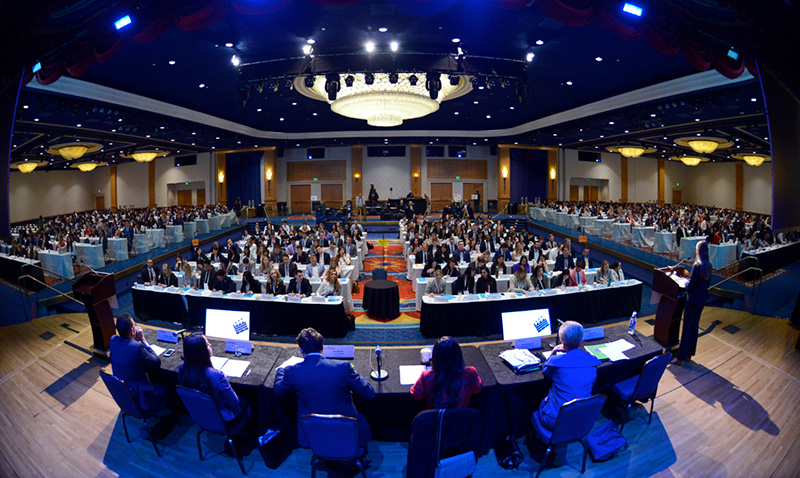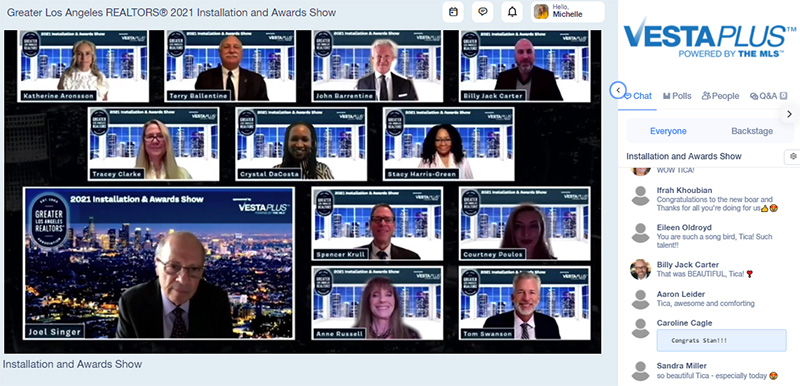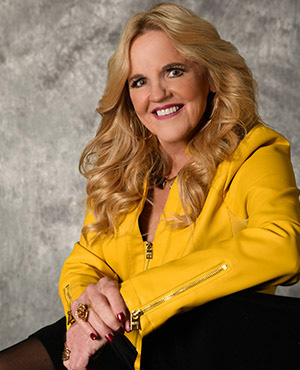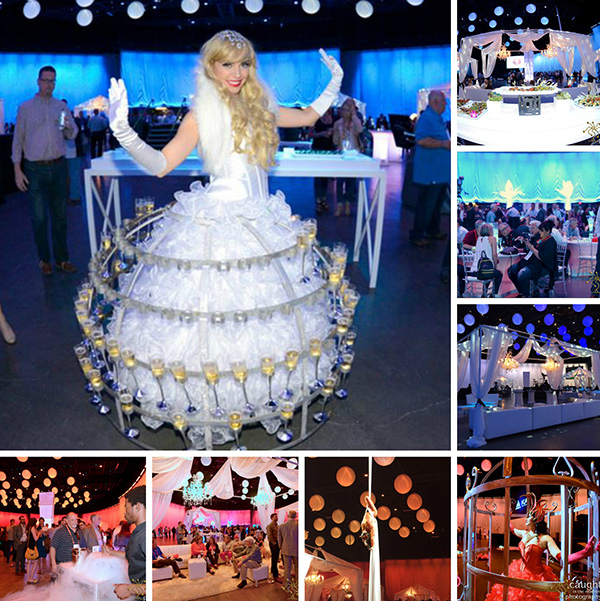Adapt.
A woman-owned conference and event planning company in California shifts business model to all virtual.
Coast to Coast Conferences and Events
ICIC Programs:
Goldman Sachs 10,000 Small Businesses (10KSB)
Inner City Capital Connections (ICCC)
Michelle Manire took a leap when she left her stable hotel management position and created her own conference and event planning company, Coast to Coast Conferences and Events (CTC). Originally from Denver and a graduate of University of California-Los Angeles, Michelle worked her way up the corporate ladder with two hotel chains to become general manager.
She worked all over the country running hotels and managing hundreds of employees. While working in Anaheim, she got an offer that would transfer her once again, but she was happy in California and wanted to settle down and build her life there.
“I didn’t stay anywhere for more than a year or two. I wanted to put down some roots,” she recalls. “So, I decided to open my own company, thinking it would be easy. But it was a rude awakening.”
From raising capital to recruiting and interviewing job candidates to building a client base, the challenges abounded. She joined the Women’s Business Enterprise National Council (WBENC) where she was connected with the Goldman Sachs 10,000 Small Businesses program in 2012.
Through 10,000 Small Businesses, Michelle took classes, partnered with a business coach and was able to focus more on strategy rather than operations. She furthered her business education and refined her strategy by participating in back-to-back Los Angeles cohorts of Inner City Capital Connections in 2018 and 2019.
“I’m a lifelong learner. They were great programs,” she says. “That was the first time I stepped away from my business. I was able to really focus on the growth of my business.”

GROWTH THROUGH INNOVATION
CTC is projecting growth of 46 percent in 2021 over 2020, much of which is attributed to the explosion of hybrid conferences, trade shows and events.

Instant Devastation
In March of 2020, Michelle was returning from a conference in St. Louis that she organized for the City of Los Angeles when the first COVID-19 shutdowns were announced. As an uncertain nation braced for an economic disruption the likes of which had never been seen, her phone, text and email began erupting with cancelations. Companies were terrified and the first things cut were conferences, events, trade shows and business travel. It was sheer devastation and it happened in minutes, not days.
“I’ve been through a recession, 9/11, and been in business 25 years and have never seen anything like it,” she says. “That was my first ‘uh-oh’ moment. After a week or two, we saw the writing on the wall that the pandemic wasn’t going to be over in a month or two.”
The hospitality industry, which represented a large portion of Michelle’s business, was devastated. The industry lost 50 percent of its workforce, or 8 million jobs. Many were Michelle’s friends, former colleagues, and clients.
“I’ve never been through anything like that where colleagues were being laid off or terminated at executive levels,” she says. “They were closing properties overnight. It was just shocking.”
How to stop the freefall and help her clients navigate the chaos became her top priority. They moved all events scheduled for the Fourth Quarter of 2020 to 2021. But as the shutdowns lingered and no end appeared in sight, more needed to be done.
“We never thought in-person events would ever go away. Suddenly, they were gone,” she said. “We sat down and said, ‘How are we going to be of value to our clients now that everything is closed?’ We knew we had to learn everything we possibly could about the virtual event space. We immediately started to pivot.”
She started listening to webinars on virtual events. They invested in a virtual event platform and Michelle completed a six-week training and certification program to operate the system and become a licensed contractor.
“It had features our clients would need. I’m happy we selected one that we learned really well so we could help our clients,” she says.
BRAVE NEW (HYBRID) WORLD
According to Harvard Business Review, almost 50% of corporate event attendees consider hybrid events the ideal format for the future. In 2021, 64% of businesses say they’re increasing their virtual events, and 58% say they’re planning for a mix of virtual and in-person events.

“I’ve been through a recession, 9/11, and been in business 25 years and have never seen anything like it… After a week or two, we saw the writing on the wall that the pandemic wasn’t going to be over in a month or two.”
Recover and Rebuild
Her team was down to just three people, but as the virtual event business began to blossom, she added two staffers and a technical team of eight. They started doing virtual training seminars for speakers, sponsors, and exhibitors, running online training, and hosting virtual conferences and events.
“It was slim pickings. Our business ended overnight,” she recalls. “But because we were able to transition to the virtual side overnight, that’s what really saved us. And it’s what we’ve been doing the past two years.”
The results have been impressive, so much so that Michelle was named the 2020 Entrepreneur & Executive of the Year by Los Angeles Business Journal. Even as the vaccine arrived and businesses started slowly reopening, her business remained mostly a mix of virtual and hybrid. The hybrid model is particularly attractive for clients because they can save travel costs while still having an in-person component. Clients can also bring in speakers much easier through virtual channels that can be shown online and live at the event.
“I’m encouraging all my clients to use the hybrid model because otherwise you’re leaving a lot of attendees out,” she explains. “Hybrid is here to stay. You can do a conference from the office or the home. (The pandemic) has totally disrupted our industry, in some good ways.”
Michelle has since reopened her office at the World Trade Center in Long Beach, California. Her technical team is working in office, and they practice social distancing, mask wearing and other COVID protocols.
“It’s been exciting to learn all these new skillsets. Once we said we were committed to taking care of our clients, it changed. We just put the pedal to the metal. We never stopped,” she says.
As cities reopened, more in-person events began to occur, but virtual and hybrid events are booming, so much so that she’s adding staff. Like many businesses emerging from the wreckage, she’s searching hard to hire the right people while rebuilding from a year that posed challenges unlike any seen before.
“Nobody has the answer yet. None of us know how it’s going to work out. But there’s been a lot of innovation which is great,” she said. “The pandemic is not an on or off switch. It’s a dimmer. We thought when the vaccine came, it was on again. But as we’ve seen it’s not. But now, we have all the tools, so we can turn on a dime to virtual or hybrid if we have to.”
